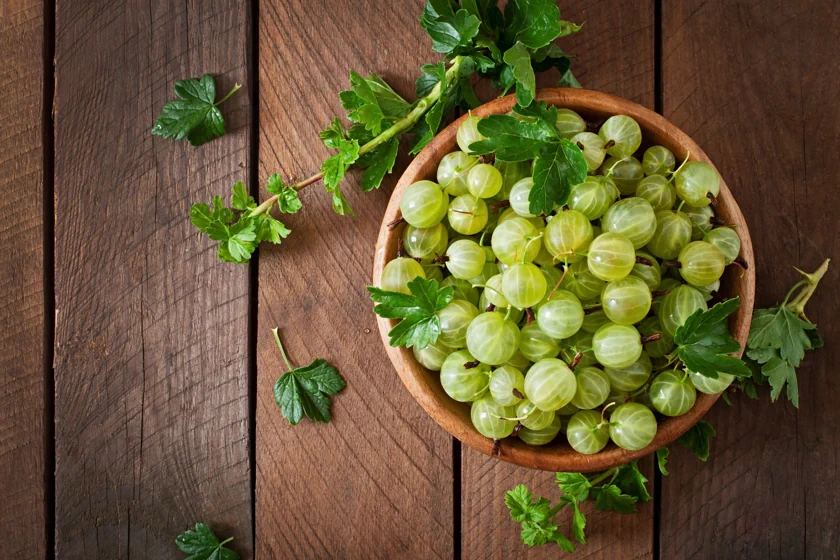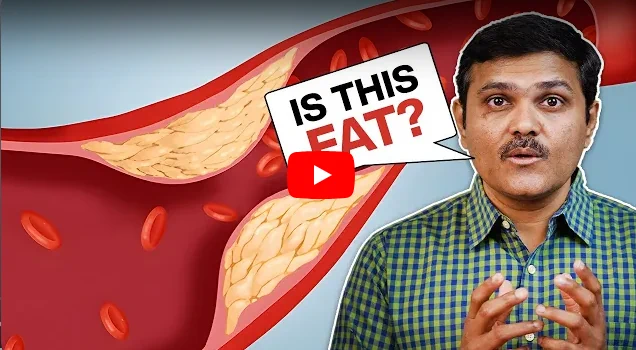
Clogged Arteries: 7 Foods to Clean and Unclog Blocked Arteries Naturally
As I stood in the operating room, preparing for yet another bypass surgery on a 35-year-old patient, I couldn’t help but reflect on the alarming trend I’ve witnessed over my two decades as a vascular surgeon in India. Our nation, once known for its heart-healthy traditional diet, now faces a cardiovascular crisis of unprecedented proportions.
Did you know that Indians are prone to heart disease almost a decade earlier than our Western counterparts? According to the Indian Council of Medical Research, 32% of Indians in urban areas are at high risk of developing cardiovascular disease. But here’s an exciting twist – our traditional cuisine might hold the key to reversing this trend.
In this blog post, I’ll share my insights on the best way to naturally unclog arteries using seven superfoods deeply rooted in Indian culinary traditions. Let’s embark on a journey through the bustling spice markets and lush farms of India to discover how we can reclaim our heart health, one bite at a time.
7 Foods to Clean and Unclog Blocked Arteries Naturally
A leg ulcer is an open sore that develops when the skin breaks down and exposes the underlying tissue. These ulcers can be shallow or deep and are often slow to heal, sometimes persisting for weeks or even months.
The most common type of leg ulcer is the venous leg ulcer, which accounts for over 80% of all leg ulcer cases. Venous ulcers typically occur on the lower leg, near the ankle, and are often accompanied by swelling, discoloration, and aching.
Leg ulcers can severely impact mobility and daily life, causing discomfort and sometimes infection. Therefore, early diagnosis and prompt treatment are crucial in preventing complications and promoting healing.
Amla
While the West raves about exotic berries, we have our own superfruit right in our backyard. Amla, or Indian gooseberry, has been a cornerstone of Ayurvedic medicine for millennia. In my practice, I’ve seen remarkable improvements in patients who incorporate amla into their diet.
A groundbreaking study at the Chhatrapati Shahuji Maharaj Medical University in Lucknow found that consuming 50g of fresh amla daily for 12 weeks reduced total cholesterol by 17% and increased HDL (good cholesterol) by 14%. The high vitamin C content in amla acts as a powerful antioxidant, protecting the arterial walls from oxidative damage.
Try starting your day with a shot of fresh amla juice or add dried amla powder to your morning smoothie.
Methi (Fenugreek)
Methi, a staple in Indian kitchens, is more than just a flavoring agent. Its seeds contain compounds that can significantly lower cholesterol levels. In my clinical experience, patients who regularly consume methi have shown improved lipid profiles.
A study conducted at the S.D.M. College of Medical Sciences in Dharwad, Karnataka, found that consuming 10g of fenugreek seeds daily for three months reduced LDL cholesterol by 13% and increased HDL cholesterol by 24%.
Soak methi seeds overnight and consume them in the morning, or use the leaves in your sabzis and dals.
Curry Leaves
Often overlooked as a mere garnish, curry leaves are a powerhouse of heart-healthy nutrients. Rich in antioxidants and fiber, they help reduce cholesterol oxidation and improve blood flow.
A study at the Sri Venkateswara University in Andhra Pradesh found that regular consumption of curry leaves reduced total cholesterol and triglyceride levels by up to 20% in patients with hyperlipidemia.
Add fresh curry leaves to your tadkas or dry and powder them to sprinkle over your meals.
Ragi (Finger Millet)
In my practice, I’ve observed that patients who switch from refined grains to whole grains like ragi show significant improvements in their cardiovascular health. Ragi is rich in fiber, calcium, and polyphenols, all of which contribute to heart health. No wonder that millets are now termed as superfoods!
Research from the National Institute of Nutrition in Hyderabad showed that regular consumption of ragi can help reduce the risk of cardiovascular disease by improving insulin sensitivity and lowering bad cholesterol levels.
Try replacing your morning wheat roti with a ragi roti or enjoy a bowl of ragi porridge for breakfast.
Jamun
This humble fruit, often overlooked in favor of imported varieties, is a cardiovascular superhero. Rich in anthocyanins and ellagic acid, jamun helps improve blood lipid profiles and reduces oxidative stress.
A study at the University of Mysore found that regular consumption of jamun extract for 30 days significantly reduced total cholesterol and increased HDL cholesterol in patients with type 2 diabetes.
Enjoy fresh jamun when in season or look for jamun powder to add to your smoothies year-round.
Moringa
Moringa, known as the “drumstick tree” in India, is gaining global recognition for its health benefits. In my clinical experience, patients who incorporate moringa into their diet show improved blood pressure and cholesterol levels.
Research from the Maharaja Sayajirao University of Baroda found that moringa leaf powder supplementation for 50 days reduced total cholesterol by 14% and increased HDL cholesterol by 9% in hyperlipidemic patients.
Add moringa leaves to your dal or try moringa powder in your smoothies or as a tea.
Kokum
This tangy fruit, popular in Goan and Maharashtrian cuisine, is a hidden gem for heart health. Rich in hydroxy citric acid, kokum helps reduce cholesterol synthesis and aids in weight management.
A study at Goa University found that kokum extract significantly reduced triglyceride levels and improved HDL cholesterol in obese individuals.
Use kokum in your curries as a souring agent or enjoy it as a refreshing summer drink.
Conclusion:
As we’ve explored these seven superfoods, it’s evident that the solution to unclogging arteries naturally might be hiding in plain sight in our own kitchens and local markets. By embracing these traditional foods, we have the potential to reverse the alarming trend of early-onset heart disease in our country.
However, remember that diet is just one piece of the puzzle. Regular exercise, stress management, and avoiding harmful habits like smoking are equally crucial. As a vascular surgeon, I’ve seen too many young lives cut short by preventable heart disease. Don’t wait for a wake-up call on the operating table. Start nourishing your arteries today with these Indian superfoods and take charge of your heart health.
Remember, every meal is an opportunity to fight heart disease. Choose wisely, eat mindfully, and let’s work together to make India’s heartbeat stronger and healthier.
FAQs
Yes, certain foods and lifestyle changes can help improve arterial health. Incorporating superfoods like amla, methi, and curry leaves into your diet can support heart health and help manage cholesterol levels. However, remember that these can achieve plaque stabilization or modification but not a 100% clearance of the blockages.
The best way to naturally unclog arteries involves a combination of a healthy diet rich in antioxidants and fiber, regular physical activity, stress management, and avoiding smoking.
Natural methods include eating heart-healthy foods, such as those mentioned in this blog, and engaging in regular exercise. It’s also important to manage stress and maintain a healthy weight. However, none of these natural methods can completely clear blocked arteries. Always consult with your vascular or cardiovascular specialist to understand the severity of your problem.
Symptoms may include sudden numbness or weakness in the face, arm, or leg, difficulty speaking or understanding speech, sudden loss of vision in one or both eyes and dizziness or loss of balance.
Treatment options for carotid artery blockage may include lifestyle changes, medication to lower cholesterol and blood pressure, and surgical procedures like carotid endarterectomy or angioplasty.
Indian superfoods like amla, methi, and ragi are rich in antioxidants, fiber, and other nutrients that help improve cholesterol levels, reduce inflammation, and support overall cardiovascular health.
Fenugreek seeds have been shown to reduce LDL cholesterol and increase HDL cholesterol. Consuming fenugreek regularly can contribute to improved lipid profiles.
Yes, curry leaves are rich in antioxidants and fiber that help reduce cholesterol oxidation and improve blood flow, contributing to better cardiovascular health.
Natural ways to manage blood pressure include eating a balanced diet rich in fruits, vegetables, and whole grains, reducing sodium intake, staying physically active, and managing stress.
Dr. Sumit Kapadia is renowned as one of the best vascular surgeons in India, specializing in treating arterial blockages and other vascular conditions. For varicose vein treatments, seeking the best varicose vein doctor is crucial for effective management. You may subscribe to his Youtube channel to get authentic information for your vascular health!




